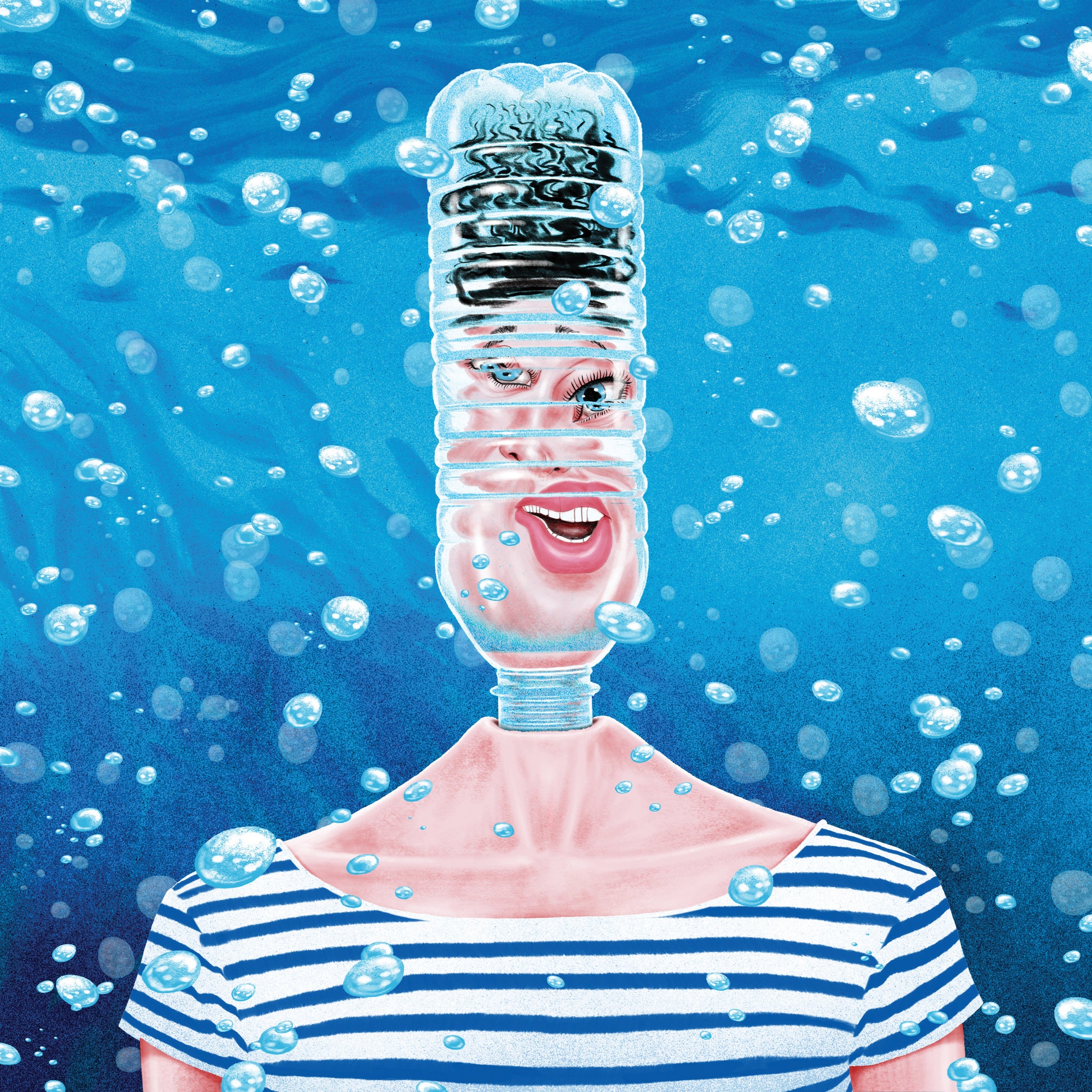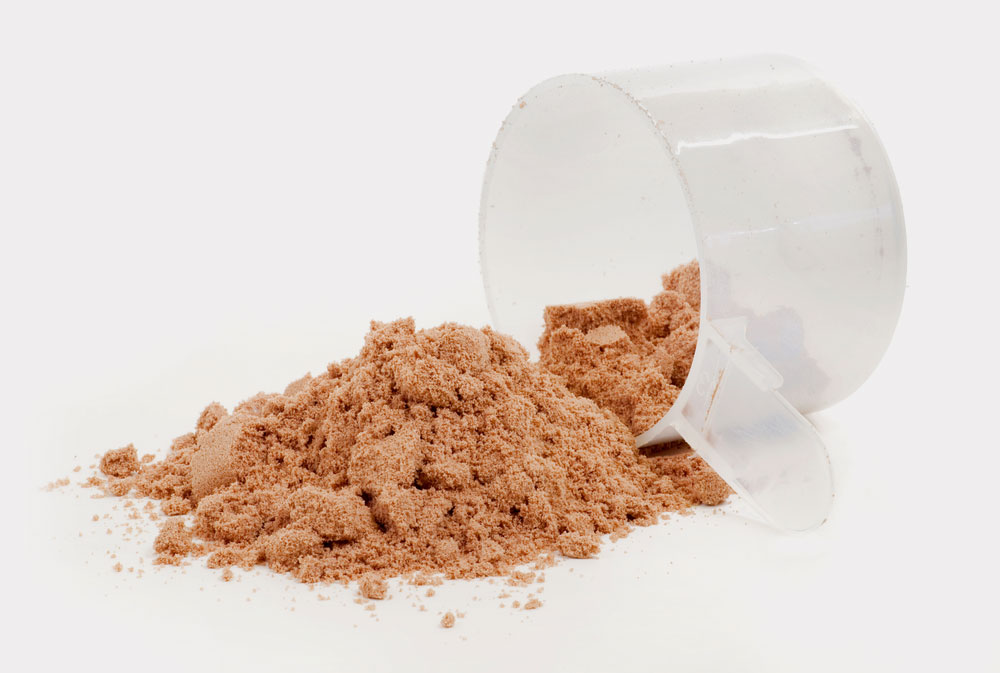Everyone’s Resolution Is to Drink More Water in 2020
Everyone’s Resolution Is to Drink More Water in 2020
Why are we so obsessed with hydration?

Water is pretty boring, as far as beverages go. It doesn’t have a catchy jingle, a secret family recipe or even a taste, really. Yet people can’t seem to get enough of it.
“I get people in my office every day, every week, saying something like, ‘I’m concerned I’m not hydrated,’” said Lauren Antonucci, a nutritionist in New York City.
Their concerns may be based on conventional wisdom. One well-known recommendation suggests drinking eight glasses of water a day; another warns that if you feel thirsty, you’re already dehydrated.
But anxiety about water consumption could also stem from a different, more philosophical source: Hydration is now marketed as a cure for nearly all of life’s woes.
The Answer to Everything
Water, in recent years, has been imbued with the powers of a mysterious elixir. The latest “it” celebrity’s skin care secret? Oh, just water. Feeling sluggish? You probably need more water. Uninspired and utterly hopeless about your career and romantic prospects? Well, have you had any water today?
People hydrate as if their reputations depend on it. They dutifully carry water bottles with them wherever they go, draining and refilling them with gusto.
Some go so far as to track their consumption in a journal, or with a mobile app. (There’s one that uses a plant as a metaphor for the user’s well-being. Depending on the volume of water one has consumed, it may appear to be thriving or wilting.)
Hydration is the mark of a well-adjusted, successful person. On Jan. 1, Twitter flooded with resolutions to drink more water, including from Twitter’s brand account.
But will more conscious hydration really make for a more productive 2020?
“There’s no evidence that a little bit of dehydration really impacts anybody’s performance,” said Dr. Mitchell Rosner, a kidney specialist at the University of Virginia who studies overhydration in athletes, in a phone interview.
He said that most recommendations for hydration come from studies of athletes, who lose fluid rapidly during workouts or competitions, and are at a much higher risk for dehydration than the average person.
For those of us who spend all day at a desk, Dr. Rosner said, it’s best to drink only when we feel thirsty.
Overhydrating, he said, isn’t helping anyone. At best, Dr. Rosner said, “You pee it out.” At worst, it can cause the sodium and electrolyte levels in your body to drop to dangerously low levels. The condition, hyponatremia, can result in hospitalization and death. (This doesn’t happen often, but … good to know.)
If hydration is the goal, it’s also worth considering that water may not be the most hydrating beverage out there. A study published in 2015, of 72 male subjects, found that full-fat milk, skim milk and orange juice kept people more hydrated than still water did.
So, could America be ready for a dairy revolution? Unlikely. That’s because water isn’t just a beverage preference that needs to be toppled. It’s a virtue.
How Did We Get Here?
In 2017, bottled water surpassed soft drinks as the top beverage in the United States by volume, with sales up 7 percent over the previous year, according to the Beverage Marketing Corporation, a beverage consulting firm. Since then, sales have continued to rise.
“It’s no accident that it’s No. 1,” said Michael Bellas, the chairman of the Beverage Marketing Corporation. “If you had to put together a perfect scenario and plan how to build a category this would have been it.”In the 1970s, ad campaigns by Evian and Perrier introduced the concept of bottled water as a high-end refreshment beverage, Mr. Bellas said. Before that, bottled water was sold as a tap water replacement.
These new campaigns helped enable bottled water to compete with other grocery store beverages, like juice, coffee, soda and beer.
By the early aughts, Mr. Bellas said, people weren’t just drinking bottled water while sitting down for a meal. They were drinking it all day. While consumers may have begun to curb their intake of caffeinated or sugary beverages, they had no reason to put a limit on zero-calorie, thirst-quenching water. And they were carrying it around with them, on the go.
“It changed the way beverages were consumed,” Mr. Bellas said. If people were drinking water everywhere, it could be sold anywhere. And it was. Bottled water’s indefinite shelf life and readily available product made its expansion seamless.
As single-use plastic water bottles proliferated, an environmentally conscious response emerged: reusable water bottles. Nalgene, which began as a plastic laboratory pipette maker before outdoorsy scientists realized they were perfect for camping, became an accessory for college students in the early aughts.They could pick a Nalgene color that reflected their personality and then plaster it with stickers for whatever they cared about: the college radio station, student government, the Dave Matthews Band.The rise of Nalgene coincided with Mr. Bellas’s observation that carrying bottled water took on a symbolic meaning during the early aughts.“It was cool to carry a water bottle around,” he said. “And it was healthy. It made a statement.” Reusable water bottles made the same statement with an environmental twist.In recent years, ever-growing environmental and health concerns have turned them into a gift-guide-worthy statement item. For the consumers with big budgets, there’s Yeti. For VSCO girls, there’s the Hydro Flask. Aesthetically discerning buyers may gravitate toward design-forward companies like Bkr or Hay.Any of them make for a gift that says, “I love you, and I want you to be hydrated.”
What About All Those Health Claims?
Water is a go-to remedy for a variety of ailments: exhaustion, headaches, digestive problems, inflammation, dry skin, acne.
“It’s a popular idea among patients and a popular idea in consumer media that hydration equals healthy skin,” said Dr. Joshua Zeigler, a dermatologist at Mount Sinai in New York City.But that’s not exactly how it works. “It’s a complete myth that eight glasses of water are necessary to maintain hydrated skin,” he said. Still, many consumers treat water like an anti-aging potion.We think of water as so good for us that the bottled water industry doesn’t need to spend much money on convincing us to buy it, compared with marketing budgets for other beverages.Advertising expenditures in 2018 were $109 million for the bottled water industry, while the beer industry spent more than $1.5 billion, and the soft drink industry came close to $1 billion, according to data from Kantar Media.The truth is that for the most part, consumers don’t care what brand of bottled water they buy; the best-selling brand of bottled water, according to the online statistics portal Statista, is “private label,” which is another term for “generic brand.” Consumers don’t even know who manufactured it, or where.
Water appears immune to claims that its benefits are overblown — we need it to survive, after all. Its benefits have even become a meme. There are social media accounts dedicated to berating their followers for not drinking enough water.
But if you haven’t quite hit your quota today, don’t worry: Your 2020 isn’t already ruined. The tasty beverages you thought of as dehydrating, like coffee, tea and beer, are actually hydrating.




